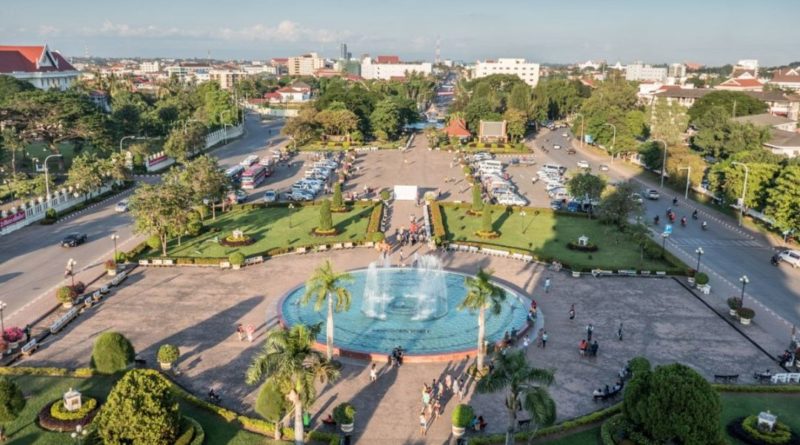Want To Invest In Laos? This Is Why You Shouldn’t
Source: investasian … by
(The views, opinions, positions or strategies expressed by the author and those providing comments are theirs alone, and do not necessarily reflect the views, opinions, positions or strategies of J&C Services or any employee thereof.)
Laos is one of the fastest growing nations in Asia. Strong exports and a burgeoning service sector helped its economy surge by 6.8% in 2016. The Asian Development Bank predicts even faster GDP growth of more than 7% going forward.
Meanwhile, foreign investment in Laos surging – especially from its much larger neighbor. China is pouring record amounts of capital into nearby countries through the One Belt One Road initiative. Laos is one of the main beneficiaries.
The fact that Laos borders five other nations, including China, makes it a prime target to become a transport hub for the ASEAN region. A prime example is the high speed rail line being financed by China. It will run through Laos and into Southeast Asia, leading to even more trade.
Strong historical performance, and even better days predicted ahead, might make you think you should invest in Laos.
You probably shouldn’t though. Here are a few reasons why.
It’s Hard to Invest in Laos
Despite a rapidly growing Lao economy, it’s difficult for investors to bring money in and buy assets. Markets are only useful if you can access and profit from them.
All land in Laos is owned by the state. Foreigners can only lease land for up to 30 years. Strangely enough, foreign buyers can own houses and other property in Laos – just not the land they’re built on.
Do you really want to buy a home when it’s at the mercy of someone else’s land though?
Laos, like most frontier markets, doesn’t have a stock market either. This means starting a business is the only practical way for most people to invest in Laos. There’s not many options left in a country which bars foreign ownership and doesn’t have a stock market.
What’s the problem? Doing business in Laos is also difficult. Forming and maintaining a company is a bureaucratic nightmare. On top of that, getting a long-term visa to actually live in Laos and run your company is a headache.
Quite simply, while nearby countries are among the easiest places in the world to invest, Laos is among the hardest.
Laos is Landlocked
Geography isn’t something which can be changed. But a nation’s place on the map usually defines how easily it can grow. Having natural resources, access to sea routes, and arable land are all factors which help sustain economic growth over the long-term.
Laos is surrounded by five other nations. Having borders with as many markets as possible is generally a good thing for exports. But for Laos, it’s at the expense of having access to the sea.

Life isn’t fair. But Laos is at an inherent disadvantage because of its position on the map.
Being landlocked means that Laos will always have a hard time selling their products to the world. They can’t ship by themselves. Laos will always be dependent on neighbors which border the ocean like Thailand and Vietnam.
Not only is this inconvenient for Laos, but also costly. Lao products being exported through Thai ports, for example, would be subject to Thai tariffs. Industry will be less competitive and have a harder time getting started in Laos.
Furthermore, Laos itself is difficult to maneuver. About 70% of the country is made up of mountain ranges and highlands while dozens of rivers run throughout.
This is also costly and inconvenient. Taxpayers will need to spend money on things like bridges and tunnels to merely get across the country. Laos doesn’t have the luxury of building long roads across a flat plain.
As a result, infrastructure in Laos has a higher cost and will probably stay below global standards for a while. This issue is compounded by several other factors in this article (most of them self-imposed) and will deter those wanting to invest in Laos.
There’s Better Options Nearby
Nothing stated in this article means you can’t make a healthy profit in Laos. In fact, lots of multinational businesses are doing very well there. Many of these are large companies from places like Vietnam and China, but plenty of smaller firms have found success too.
With that said, there’s better options right next door to Laos. Vietnam’s stock market is fully functional and doing business is much easier. Cambodia allows foreign property ownership and almost anyone can get a long-term visa there.
There’s no reason to burden yourself with paperwork, stress, and bureaucracy when places like Cambodia and Vietnam are right next door. Both are growing at around the same pace as Laos, yet they have far less of the negative aspects.
We’re talking about the most dynamic continent in the world. If you’re investing in Asia, do it right. Don’t sell yourself short.
by Reid Kirchenbauer, Founder of InvestAsian.
(The views, opinions, positions or strategies expressed by the author and those providing comments are theirs alone, and do not necessarily reflect the views, opinions, positions or strategies of J&C Services or any employee thereof.)

